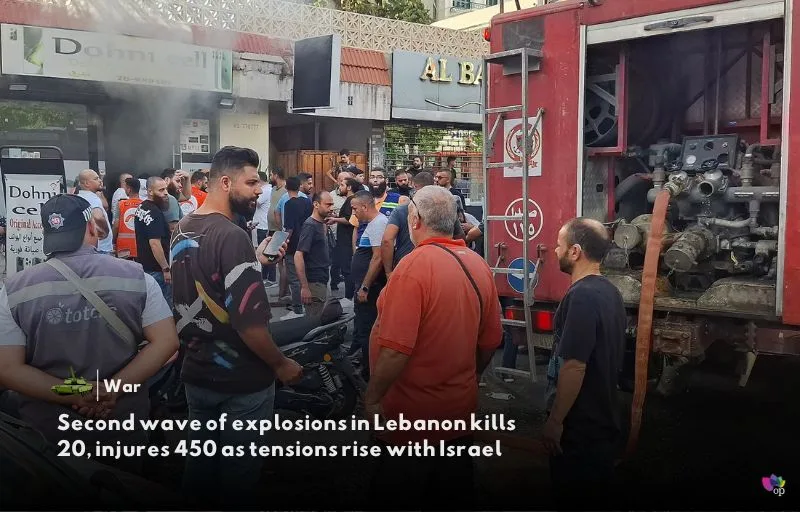A series of explosions linked to wireless communication devices has killed at least 20 people and injured more than 450 in Lebanon, the country’s health ministry reported on Thursday (19 September). The blasts, targeting Hezbollah strongholds in the southern suburbs of Beirut, the Bekaa Valley, and southern Lebanon, have further destabilized the already tense region.
According to reports, the explosions were caused by walkie-talkies used by the armed group Hezbollah. The blasts occurred during funerals for victims of an earlier explosion on Tuesday (17 September), where 12 people died after Hezbollah members’ pagers detonated. These attacks have prompted Hezbollah to accuse Israel of being responsible for the incidents, though Israel has not officially commented.
This second wave of explosions has dramatically raised the death toll and spread panic in areas dominated by Hezbollah. The first round of explosions, which occurred two days prior, had already set off a wave of funerals, some of which were interrupted by the new detonations.
The attacks occurred as Israeli Defence Minister Yoav Gallant announced what he termed a “new phase in the war” between Israel and Hezbollah. Gallant also confirmed the redeployment of an Israeli army division to northern Israel, a move seen as part of Israel’s preparations for potential further escalation along its northern border.
The Lebanese health ministry has indicated that the death toll may rise as many of those injured are in critical condition. Hospitals in Beirut and other affected regions have been overwhelmed, and emergency services are struggling to respond to the large number of casualties. The explosions have caused widespread fear, particularly in Hezbollah-dominated regions where both civilians and Hezbollah members were targeted.
These incidents come amid a period of heightened tensions between Hezbollah and Israel, with both sides engaged in a series of retaliatory attacks. While Hezbollah has publicly accused Israel of orchestrating the recent explosions, Israel has neither confirmed nor denied involvement, leaving room for speculation about the nature and origins of the attacks.
Local authorities in Lebanon are working to investigate the devices used in the blasts and determine how the explosions were triggered. Hezbollah leaders have vowed to respond to what they see as an act of aggression, further intensifying the volatile situation along the Lebanese-Israeli border.
International observers are concerned that the escalating violence could spark a wider conflict between Israel and Hezbollah, drawing in regional and global powers already involved in the Middle Eastern geopolitical landscape. Both sides have exchanged hostilities in recent weeks, but the explosions mark a troubling new development in the ongoing confrontation.
References



Comments 1